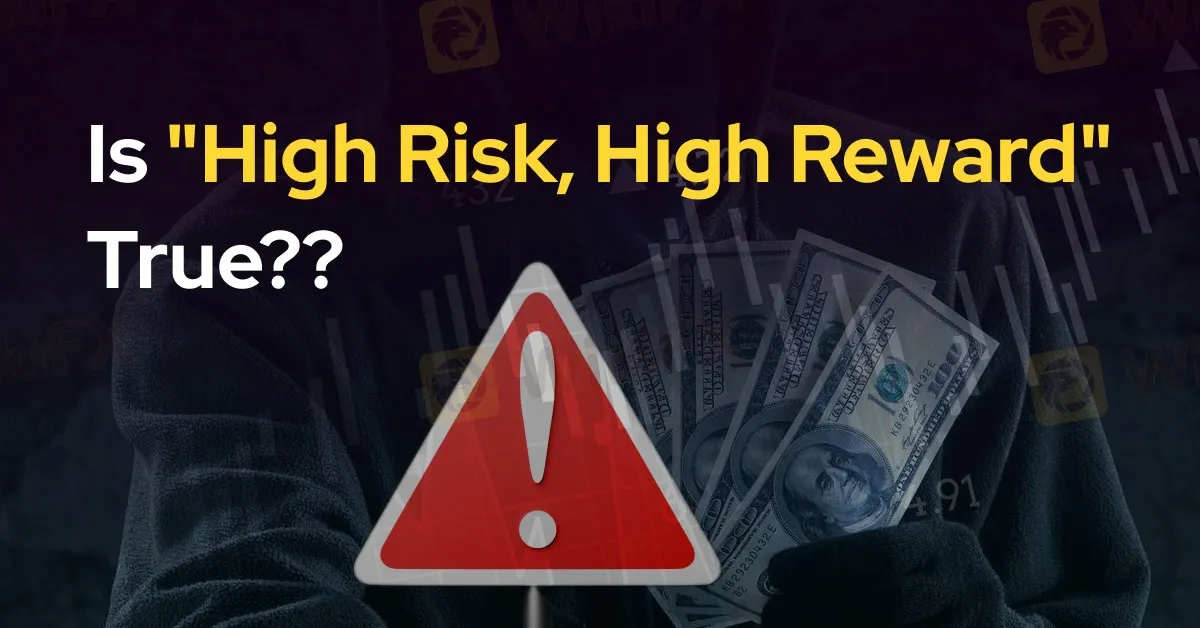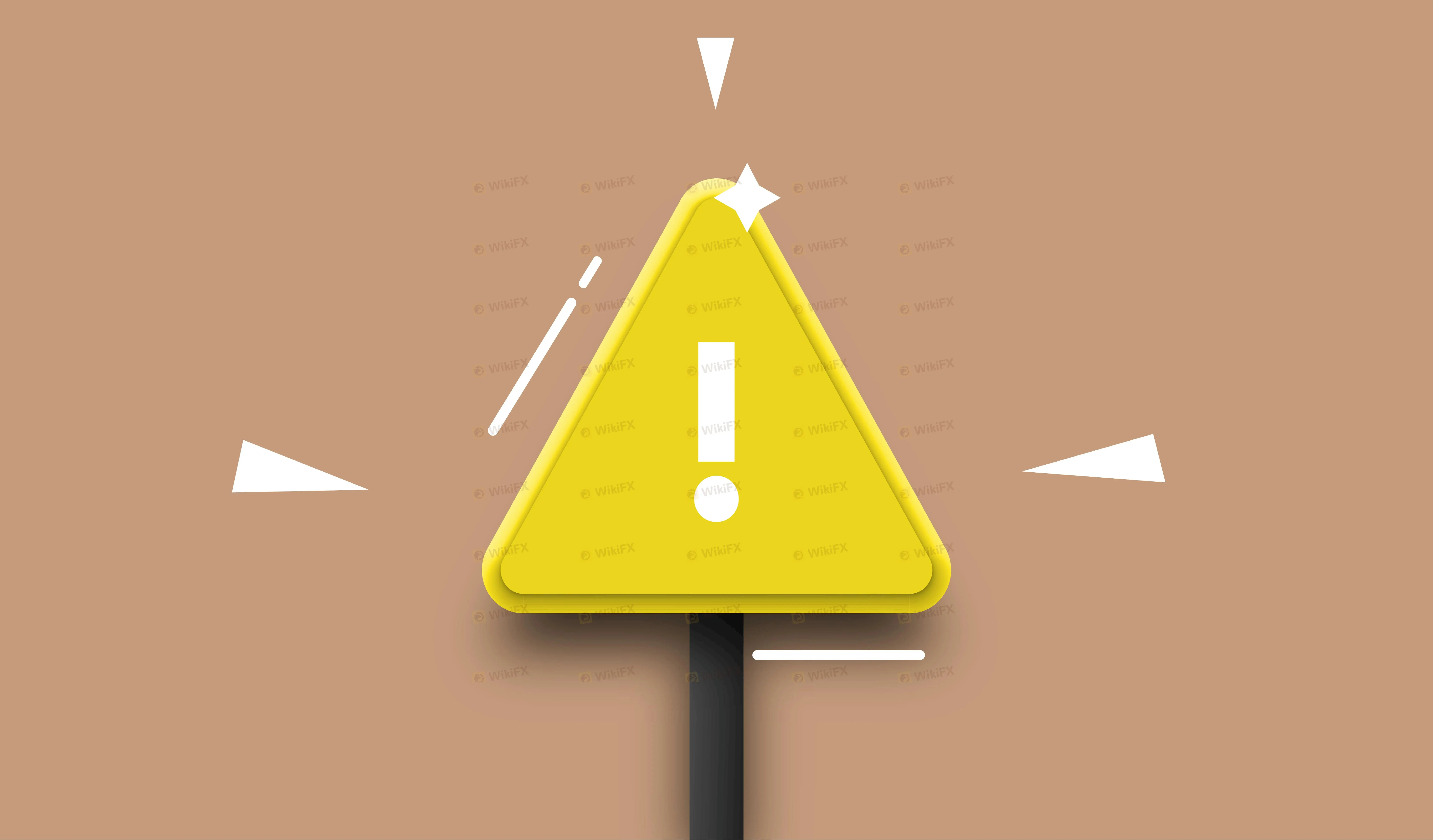简体中文
繁體中文
English
Pусский
日本語
ภาษาไทย
Tiếng Việt
Bahasa Indonesia
Español
हिन्दी
Filippiiniläinen
Français
Deutsch
Português
Türkçe
한국어
العربية
Is “High Risk, High Reward” True??
Abstract:The phrase "high risk, high reward" is often tossed around in the trading world, serving as a mantra for those chasing substantial gains in the financial markets. However, this is a statement that should not be taken lightly.

The phrase “high risk, high reward” is often tossed around in the trading world, serving as a mantra for those chasing substantial gains in the financial markets. It's a phrase that carries a sense of excitement and the promise of quick wealth. However, behind this enticing notion lies a stark reality that many traders overlook—a reality that can lead to devastating financial losses.
In the fast-paced world of online trading, the potential for quick profits can be incredibly alluring. Traders are constantly bombarded with success stories of individuals who turned small investments into massive windfalls. The rise of social media influencers and online trading communities has only amplified this, with many promoting the idea that anyone can strike it rich with the right strategy and a bit of luck.
But this narrative often glosses over the fact that high-stakes trading is a double-edged sword. While the potential for reward is indeed high, the associated risks are equally substantial—and often downplayed.

The concept of “high risk, high reward” hinges on the idea that the greater the risk, the greater the potential for profit. However, what is often omitted from this equation is the increased likelihood of loss. In trading, taking on higher risks doesn't just mean the possibility of losing some money; it can mean losing everything.
Leveraged trading, for example, allows traders to control large positions with relatively small amounts of capital. While this can amplify profits, it can also magnify losses. A small market movement in the wrong direction can wipe out an entire account in seconds, leaving traders with nothing but regret.
Moreover, the psychological toll of high-risk trading is significant. The stress of managing large, volatile positions can lead to impulsive decisions, clouded judgment, and ultimately, poor trading choices. The emotional rollercoaster of significant gains followed by crippling losses can also take a toll on a traders mental health, leading to burnout or even addiction.
The truth is, the majority of traders who engage in high-risk strategies do not end up making a profit. According to various studies and industry reports, a staggering percentage of retail traders—up to 80%—lose money in the markets. This statistic alone should serve as a wake-up call to those who believe that high-stakes trading is a sure path to wealth.
Yet, despite these odds, the allure of high rewards continues to draw traders in. The problem lies in the misconception that trading is a game of chance, where luck can overcome skill and strategy. In reality, successful trading requires discipline, careful risk management, and an understanding that losses are part of the process.
For every trader who strikes it big, there are countless others who lose everything. The stories of those who have lost their savings, retirement funds, or even their homes due to reckless trading are all too common. These cautionary tales are often overshadowed by the success stories that make headlines, but they are a sobering reminder of the risks involved.
Traders must remember that the markets are not a casino, and “high risk, high reward” should not be taken lightly. Before engaging in high-risk trading, it's crucial to fully understand the potential consequences and to have a solid risk management plan in place.
While the potential for high rewards in trading is real, so too are the risks. The allure of quick profits can cloud judgment and lead to dangerous decision-making. It's essential for traders to approach the markets with caution, respect the risks involved, and remember that the goal is not just to make money, but to protect what they already have.
In the end, trading is not about getting rich quickly; it's about building wealth steadily and sustainably. The next time you hear the phrase “high risk, high reward,” let it serve as a reminder of the dangers that come with chasing after big profits without fully understanding the risks. The markets can be a treacherous place for those who underestimate them.

Disclaimer:
The views in this article only represent the author's personal views, and do not constitute investment advice on this platform. This platform does not guarantee the accuracy, completeness and timeliness of the information in the article, and will not be liable for any loss caused by the use of or reliance on the information in the article.
Read more

Want to Succeed in Forex? Start with the Right Trading System
If you want to trade currencies and make money in the long run, you need a good forex trading system. Many new traders enter the market without a clear plan. Some rely on luck or tips from others. But trading without a system often leads to losses.

Risk Involved with Cabana Capital – Every Trader Should Know
Cabana Capital has changed its name and logo, basically everything about its identity. This seems a bit suspicious, and it's something you should definitely be concerned about. In this article, you’ll learn about the red flags that every trader needs to watch out for.

CME International Records a Massive Jump in Forex Volumes
CME International recorded a record surge in its foreign exchange trading volumes during the second quarter. Check out its performance across products and markets.

Scam Brokers Exposed! FCA Warns Traders to Stay Safe
If you are into forex trading, you need to protect your money from investment scams. Many scam brokers are active in the market now. The FCA, a reputed financial regulator, has issued a list of unlicensed brokers you need to stay away from.
WikiFX Broker
Latest News
US Government Interest Grows in Victory Metals’ Rare Earths Supply
How Are Trade Policies Affecting the Aluminum Market?
RM71,000 Lost in a Share Scheme That Never Existed
Scammed by a Click: He Lost RM300,000 in a Month
Manual vs. Automated Forex Trading: Which One Should You Choose?
Revealing Factors That Help Determine the Gold Price in India
Why Regulatory Compliance Is the Secret Ingredient to Trustworthy Forex Brokers
Pentagon to become largest shareholder in rare earth miner MP Materials; shares surge 40%
Delta shares jump 12% after airline reinstates 2025 profit outlook as CEO says bookings stabilized
Delta shares jump 13% after airline reinstates 2025 profit outlook as CEO says bookings stabilized
Currency Calculator


